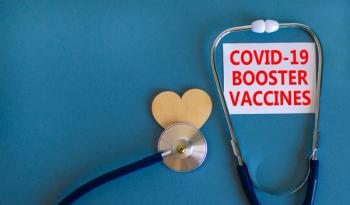
Covid-19 Antibodies Found in Nonimmune Blood Cancer Patients After Receiving Booster
Patients with blood cancers have been reported to have less of a chance to develop immunity from the COVID-19 vaccination. However, new data has been found stating those who have been previously vaccinated with no immunity and then followed up with a booster dose, eventually developed antibodies against the virus.
Patients with blood cancers have been reported to have less of a chance to develop immunity from the COVID-19 vaccination. However, new data has been found stating those who have been previously vaccinated with no immunity and then followed up with a booster dose, eventually developed antibodies against the virus.
This data is based off of a study that was published in July in the American Cancer Society's journal, Cancer.
Authors of the study retrospectively analyzed serologic responses to initial and booster COVID-19 vaccination in 378 patients with hematologic malignancy, or blood cancers such as leukemia, lymphoma and multiple myeloma, and subsequently tracked COVID-19–related outcomes.
Antibodies were found in 181 patients after initial vaccination; patients who had active malignancy or those who were recently treated with a B-cell–depleting monoclonal antibody had the lowest rates of developed antibodies, the study said.
For initial nonresponders to the vaccination, immunity after a booster dose occurred in 48 of 85 patients (56%). The seroconversion or immunity rate after the booster was similar for patients on (53%) and off (58%) active therapy.
Results from the study also found 33 patients (8.8%) developed a COVID-19 infection, and three succumed to COVID-19–related deaths (0.8%).
Researchers found that post-vaccination antibody response may not be associated with a decrease in any COVID-19 infection. They suggested effective vaccination with a booster, supplemented by passive immunization using tixagevimab/cilgavimab in case of lack of seroconversion, effectively in the otherwise high-risk population.
Newsletter
Get the latest industry news, event updates, and more from Managed healthcare Executive.























